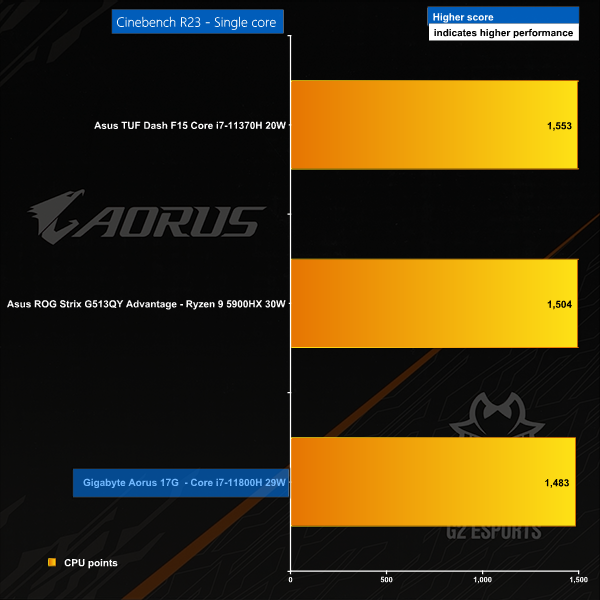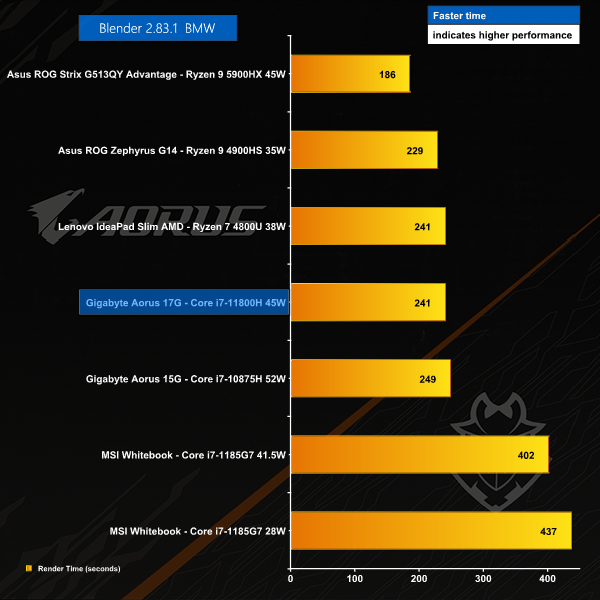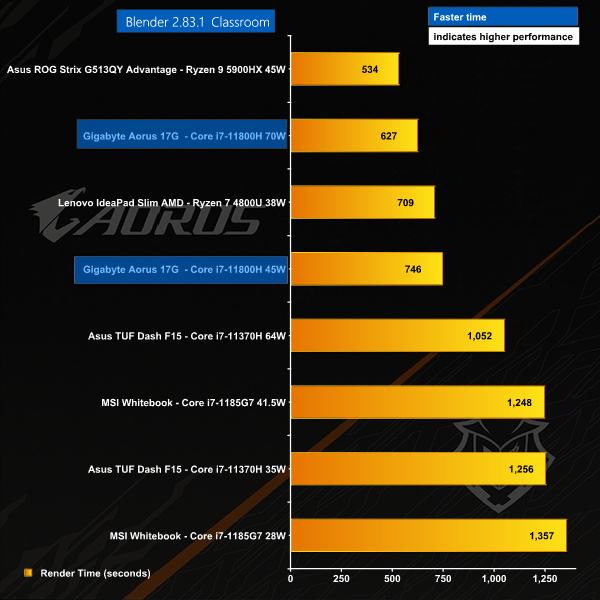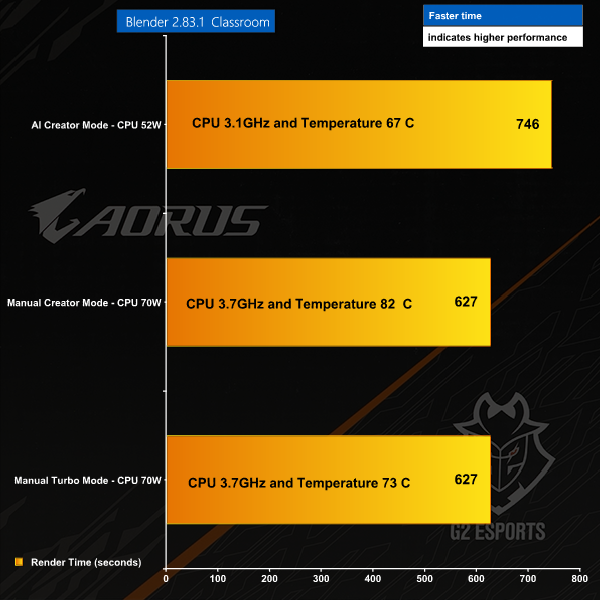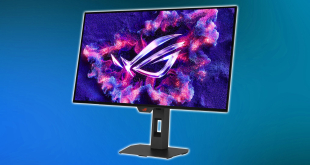Testing and Performance – Cinebench R23 and Blender
Cinebench R23 is a tough test that demonstrates the problem faced by Gigabyte when it packaged the Core i7-11800H. The quad core Tiger Lake in the Asus TUF Dash F15 drew 50W to run at 4.2GHz so Gigabyte would presumably require 95W once again to achieve the same speed. Unfortunately Cinebench R23 runs for an extended period so the laptop instead feeds 70W to the CPU and as a result the clock speed drops to 3.7GHz
In the Cinebench R23 single core test we see the eight core Tiger Lake losing out by a narrow margin.
In the rapid Blender BMW test we see the new Core i7-11800H running neck-and-neck with the older Core i7-10875H and soundly beaten by AMD. When it comes to raw CPU performance Intel simply cannot beat AMD.
In Blender Classroom you will note there are two entries for the Core i7-11800H. The slower run with 45W of CPU power is unimpressive while the faster 70W run is heading in the direction of Ryzen 9 5900HX, although it is clear the Intel CPU is significantly more inefficient.
You can see how the power mode directly affects CPU performance in this chart where we switch between different modes in Gigabyte's Control Centre software. It is clear the Core i7-111800H suffers from much the same problem as the desktop Core i9-11900K and requires high levels of power to run fast, which is simply impractical in a laptop.
 KitGuru KitGuru.net – Tech News | Hardware News | Hardware Reviews | IOS | Mobile | Gaming | Graphics Cards
KitGuru KitGuru.net – Tech News | Hardware News | Hardware Reviews | IOS | Mobile | Gaming | Graphics Cards



